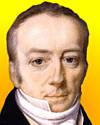
On 27 Jun 1829, the British chemist James Smithson died, who bequeathed his inherited fortune, over $500,000 (then) to found the Smithsonian Institution in Washington, D.C. The funds were deposited with Congress, which initially squandered them on bad investments. (Surprised?) If you did not already know that, learn more in this article on The Smithsonian Institution from Putnam’s Monthly (1854). Notice that this article was written within a very few years after the founding of the Smithsonian Institution in 1846.
After Congress made good on the lost funds, there still followed squabbles by politicians over what to do with the money—many pushing their own pet projects. (Surprised?) The article describes how discussions arrived at a good faith interpretation of Smithson’s intention for the “increase and diffusion of knowledge.”
The uncredited author (the editor, perhaps?) outlines examples of subsequent accomplishments. Perhaps you will find particularly interesting the lengthy footnote about the newly established Smithsonian’s contribution to research on the path of newly discovered planet Neptune.
The writer ends by editorializing. He suggests relocation from the unduly expensive, large building. Then, he makes a plea to fund other worthy goals entirely separately (national library, art gallery, museum) to devote Smithson’s gift in full to his intended purpose for the “increase and diffusion of knowledge.”

On 27 Jun 1885, Pierre Montet was born, who has been called the dean of modern Egyptologists. His notable work includes conducting major excavations at sites in the Nile Delta, discovering, in particular, funerary treasures from the 21st and 22nd dynasties. Today's book pick is: Everyday Life in Egypt in the Days of Ramesses The Great, by Pierre Montet, which is a classic, renowned for its accuracy and scope. His book conveys the richness and complexity of ancient Egyptian everyday life, focussing on the era of the great builders at Karnak and Luxor. With a masterful appreciation of the ancient Egyptian way of life, Montet provides insight into the day to day activities of royalty and priests, artisans and professionals, peasants and slaves. He gives colorful descriptions of dwelling places, seasonal festivities, holiday observances, family life, travel, justice, warfare, and the rites of burial.
This is an excellent, very readable book, based on detailed research, using paintings and carvings together with pictorial and literary sources, including some papyrus documents, as main sources for his well-organized descriptions throughout.
It is available from Amazon, typically about New from $18.95. Used from $5.84. (As of earlier time of writing - subject to change.)
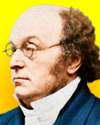 | As to writing another book on geometry [to replace Euclid] the middle ages would have as soon thought of composing another New Testament. |
 | It is easier to square the circle than to get round a mathematician. |
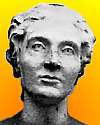 | In describing the honourable mission I charged him with, M. Pernety informed me that he made my name known to you. This leads me to confess that I am not as completely unknown to you as you might believe, but that fearing the ridicule attached to a female scientist, I have previously taken the name of M. LeBlanc in communicating to you those notes that, no doubt, do not deserve the indulgence with which you have responded. Explaining her use of a male psuedonym. |
| Before you look at today's web page, see if you can answer some of these questions about the events that happened on this day. Some of the names are very familiar. Others will likely stump you. Tickle your curiosity with these questions, then check your answers on today's web page. | |
| Births | |
 | Hans Spemann, born 27 Jun 1869, was a German embryologist who was awarded the Nobel Prize for Physiology and Medicine (1935) for his discovery of the effect now known as embryonic induction. What is the result of embryonic induction? |
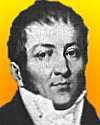 | Alexis Bouvard, born 27 Jun 1767, was a French astronomer and director of the Paris Observatory, who is noted for discovering eight comets and writing Tables astronomiques of Jupiter and Saturn (1808) and of Uranus (1821). Bouvard’s tables accurately predicted orbital locations of Jupiter and Saturn, but his tables for Uranus failed. What was the result of finding irregularities in his prediction for the orbit of Uranus? |
| Deaths | |
 | Zheng Zuoxin (1906-1998) was considered the founder of modern Chinese ornithology. He wrote A Synopsis of the Avifauna of China. In a simple word, what were the subjects of his studies? |
 | James Smithson (1765-1829) was an English scientist who provided funds in his will “for the increase and diffusion of knowledge” in the U.S. He had inherited his fortune chiefly through his mother’s family. He was a chemist and minerologist who published 27 scientific papers. For what is this man remembered? |
| Events | |
 | In 1978, Seasat, an experimental U.S. ocean surveillance satellite was launched. In a period of 36 hours was able to monitor nearly 96% of the oceanic surface. The measurement equipment on board was able to penetrate cloud cover and report measurements such as wave height, water temperature, currents, winds, icebergs, and coastal characteristics. How many orbits per day would the satellite make around Earth? |
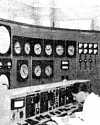 | On 27 Jun of a certain year, the world’s first grid-connected atomic power station began producing electricity in Obninsk, U.S.S.R. In what decade was this event? |
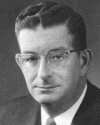 | On 27 Jun 1960, chlorophyll "a" was first synthesized by Robert Burns Woodward. This molecule consists of 55 carbon atoms linked with 72 hydrogen atoms, 5 atoms of oxygen and 1 atom of a metallic element. What is the metallic element in a molecule of chlorophyll? |
Fast answers for the previous newsletter for June 26: from the River Kelvin, near Glasgow, where he spent his life teaching at the university there • Charles Messier • large-scale spinning of high-quality textile thread • smallpox • CN Tower, named after the Canadian National Railway, which built it on the CN rail yard for TV and radio communications • the iron landslide and moldboard were cast in one piece.
 If you enjoy this newsletter, the website, or wish to offer encouragement or ideas, please send feedback by using your mail reader Reply button.
If you enjoy this newsletter, the website, or wish to offer encouragement or ideas, please send feedback by using your mail reader Reply button. Your click on a Facebook, StumbleUpon, or other social button on the site webpages is also a welcome sign of appreciation. Thank you for using them.
© This newsletter is copyright 2020 by todayinsci.com. Please respect the Webmaster's wishes and do not put copies online of the Newsletter — or any Today in Science History webpage. (If you already have done so, please remove them. Thank you.) Offline use in education is encouraged such as a printout on a bulletin board, or projected for classroom viewing. Online, descriptive links to our pages are welcomed, as these will provide a reader with the most recent revisions, additions and/or corrections of a webpage. For any other copyright questions, please contact the Webmaster by using your mail reader Reply button.
--
If you do not want to receive any more newsletters, Unsubscribe
To update your preferences and to unsubscribe visit this link
Executive Real Estate Business Class
-
"It was like a man with wings. It wasn't like anything you'd see on TV or in a monster movie." ...
About the publisher
Search This Blog
Blog Archive
-
▼
2020
(1542)
-
▼
June
(193)
- TRAVEL: Epic America—Our photographers' picks
- On This Day for June 30 - Night of the Long Knives...
- Newsletter for Tuesday 30 June.
- We told you: Mass-Tracking COVI-PASS Immunity Pass...
- June 30: Theory of Evolution, the Night of Long Kn...
- HISTORY: And the symbols come tumbling down
- Explore the Ocean with Nat Geo Kids Magazine
- New This Week on History News Network
- On This Day for June 29 - London's Globe Theatre d...
- Newsletter for Monday 29 June.
- COVID Cartoon Night (not funny) while we weep for ...
- June 29: Shakespeare's Globe Theatre Burns Down an...
- FAMILY: Getting your kid to help others
- Henry VIII's surprising burial place | The world's...
- On This Day for June 28 - Assassination of Archduk...
- Say the wrong thing: lose visitation with your kid...
- Newsletter for Sunday 28 June.
- June 28: Franz Ferdinand Assassinated, the Treaty ...
- The Compass: Kenya
- How the Invention of A/C Changed US Politics
- On This Day for June 27 - Yen made official moneta...
- Newsletter for Saturday 27 June.
- June 27: 1st Women's Magazine, Nuclear Power Stati...
- CORONAVIRUS SPECIAL EDITION: The virus hasn't won ...
- PHOTOGRAPHY: A legendary photographer's enduring r...
- Partner: How to keep your kids learning vocab this...
- Archaeologists Say They've Just Solved The 400-Yea...
- The Roundup Top Ten From History News Network
- On This Day for June 26 - Opening of CN Tower, Bab...
- Newsletter for Friday 26 June.
- Contact Tracer warns of forced vaccinations plus R...
- June 26: Reconnaissance balloons, Kennedy's Clario...
- YOUR WEEKLY ESCAPE: A dangerous quest for hallucin...
- That Was No Bunny: Watch New Episode of Alone Tonight
- ANIMALS: Leave that elephant alone
- On This Day for June 25 - Korean War begun, Antoni...
- Newsletter for Thursday 25 June.
- June 25: 1st Female PhD, Custer's Last Stand, the ...
- SCIENCE: The heat wave in the Arctic
- Demystified: What Does "SPF" Mean?
- On This Day for June 24 - Russia invaded by Napole...
- Breaking News from History News Network
- Newsletter for Wednesday 24 June.
- June 24: Fatal Medieval Dance Manias, the Gadsden ...
- TRAVEL: Fear of flying and hotel rooms fuels RV boom
- Be at the Front Lines of History's Most Epic Battl...
- On This Day for June 23 - Battle of Bannockburn, C...
- Lowest US coronavirus deaths reported since March ...
- Newsletter for Tuesday 23 June.
- June 23: World's Oldest Parliament, the Contracept...
- Life Under The Shah: What Iran Looked Like Before ...
- HISTORY: A swift goodbye to some racist imagery (a...
- A whole year of Britannica Premium for $49.99?
- New This Week on History News Network
- On This Day for June 22 - Mutiny against Henry Hud...
- Newsletter for Monday 22 June.
- Clintons and Gates Connected at the Hip plus Cardi...
- June 22: Galileo Galilei Recants, Last Shot of the...
- FAMILY: How to keep kids safe as places reopen
- On This Day for June 21 - Japanese defenses destro...
- Newsletter for Sunday 21 June.
- June 21: 1st Governor General of India, Fermat's L...
- The Compass: Ecuador
- On This Day for June 20 - Casket Letters found, Ho...
- Newsletter for Saturday 20 June.
- CORONAVIRUS SPECIAL EDITION: Could public bathroom...
- Mandatory Vaccines coming: Bill Gates Accuses Tho...
- June 20: Attila the Hun, the University of Oxford ...
- PHOTOGRAPHY: Fatherhood 2020 — ‘Fear and courage a...
- Why is America haunted by its past?
- The Woman Who Claimed Emmett Till Wolf-Whistled At...
- This Week's Roundup Top Ten from History News Network
- Exclusive HistoryExtra podcasts | Listen now
- On This Day for June 19 - Rosenbergs executed for ...
- Newsletter for Friday 19 June.
- World Economic Forum starts The Great Reset initia...
- YOUR WEEKLY ESCAPE: How the ultimate shark photo w...
- June 19: London's Metropolitan Police and the 1st ...
- Predator Encounters. Watch New Episode of Alone To...
- ANIMALS: Finding the snow leopards
- Count on a Source You Can Trust
- On This Day for June 18 - War of 1812 begun, Sir P...
- Newsletter for Thursday 18 June.
- Lockdowns, tracing, testing, vaccinating, and Libe...
- June 18: US-British War of 1812, the Battle of Wat...
- SCIENCE: They grew fearsome. They began soft, and ...
- Demystified: How Are Sports Chosen for the Olympics?
- Breaking News from History News Network
- On This Day for June 17 - Arrest of O.J. Simpson, ...
- Newsletter for Wednesday 17 June.
- June 17: Mumtaz Mahal, the French Revolution and G...
- TRAVEL: They hurtled the world's highest point
- Explore together with Nat Geo Kids magazine
- On This Day for June 16 - First woman in space, Jo...
- Newsletter for Tuesday 16 June.
- June 16: Salvation Army Forms, Bloomsday and FDR's...
- HISTORY: Why we can’t shake COVID-19
- New This Week on History News Network
- On This Day for June 15 - Magna Carta sealed by Ki...
- Yes, they really are forcing changes to your world...
-
▼
June
(193)
-
Blogroll
-
About
HistoryFact










0 comments:
Post a Comment